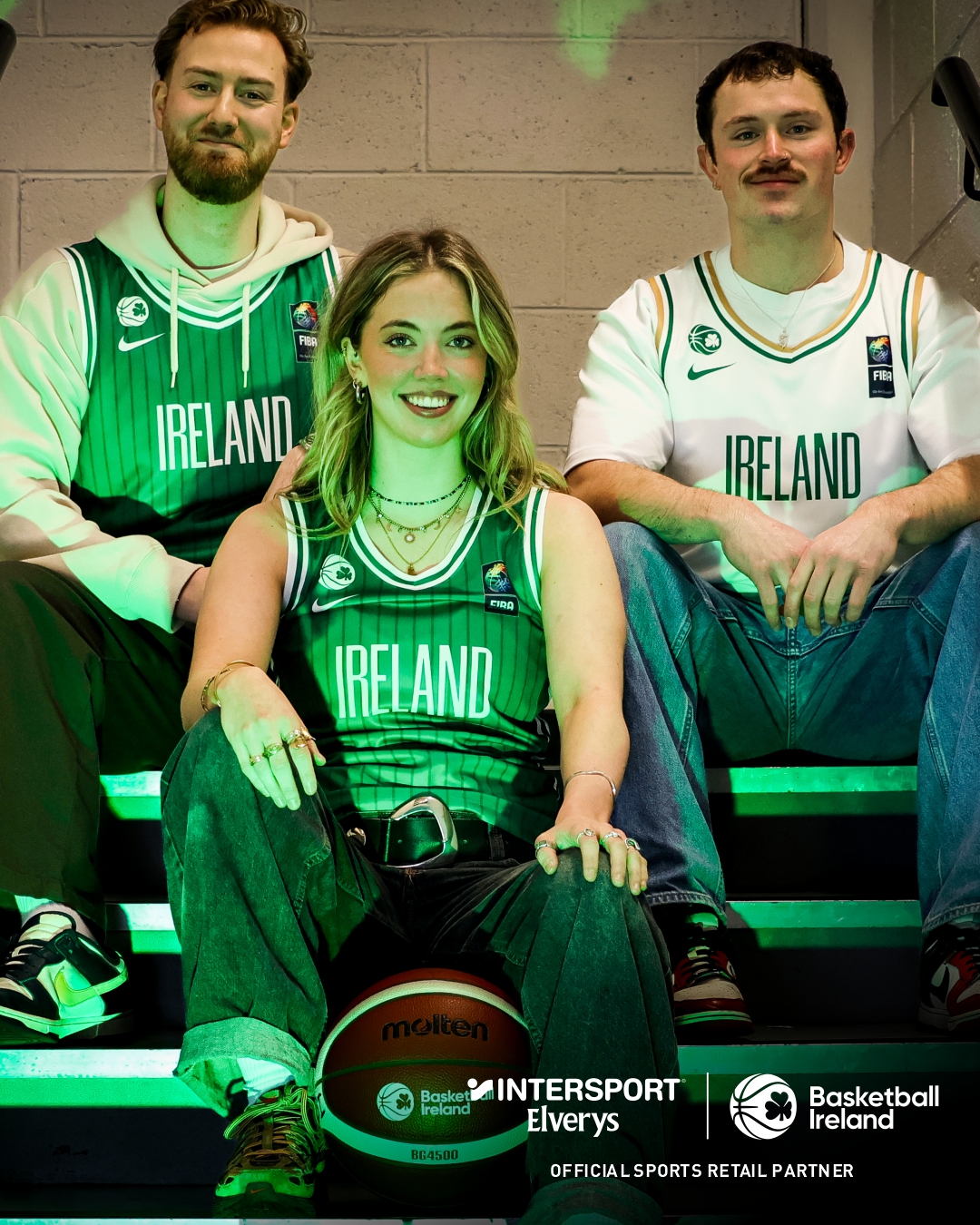Niamh Dwyer - Fr Mathews BC
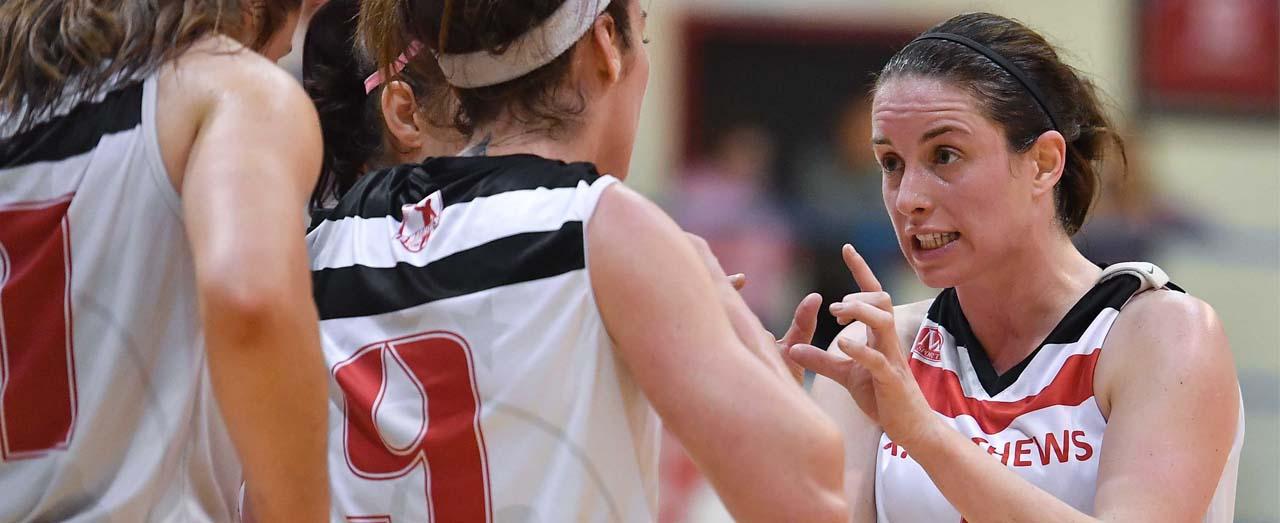
Joint Head Coach: Fr Mathews Women's Super League team.
Interview
Can you talk us through your playing background?
I started at underage with Thurles of course, then at club level I played with Teo Vilinus (Lithuania), SK Cesis (Latvia), Glanmire, Barking Abbey (UK) and Fr Mathews. Internationally, I’ve played 5x5 basketball at U16, U18, U20 and senior levels, and played at two 2 World University Games programmes. I’ve played two Europeans with 3x3, and one European Olympic Games. I played with McKendree College IL, USA for one year, and spent four years with NCAA Division I college, Monmouth University NJ, USA.
How did you get involved in coaching?
When I returned from playing in Europe, I joined Glanmire and I was asked to help out with coaching the under 18 team at time. I also began studying in UCC, and I did some coaching and refereeing on the side to help with expenses.
What kind of teams have you coached over the years?
In 2008, I was coach of Scoil Mhuire Gan Smal, Blarney boys junior and under 16 teams and also coach of CIT women’s team who competed in the colleges league and intervarsities. In 2010, I was the head coach for the Glanmire U20 team who competed in the National Cup. I’m the head coach of the schoolgirls teams in Glanmire Community College at minor, junior, u16 and u19 since 2011, and I coached the boys team in GCC during 2012 and 2013. In 2012, I was the head coach for the Glanmire U18 girls team who competed in the National Cup and Cork league. In 2013, I was head coach of the U14 Glanmire team, and in 2015 I was the Academy coach (under 10s) for Glanmire BC. From 2017 to 2019, I was the U18 head coach for the Fr Mathews girls team who competed in the National Cup and Cork league. During this time, I was also assistant coach for the Fr Mathews women’s Division One and Super League team In the summer of 2019 then I was head coach for the Ireland U18 3x3 women’s team who competed at the FIBA 3x3 U18 Women’s Europe Cup qualifiers. This season (2019/20), I became the joint head coach of the Fr Mathews Women’s Super League team.
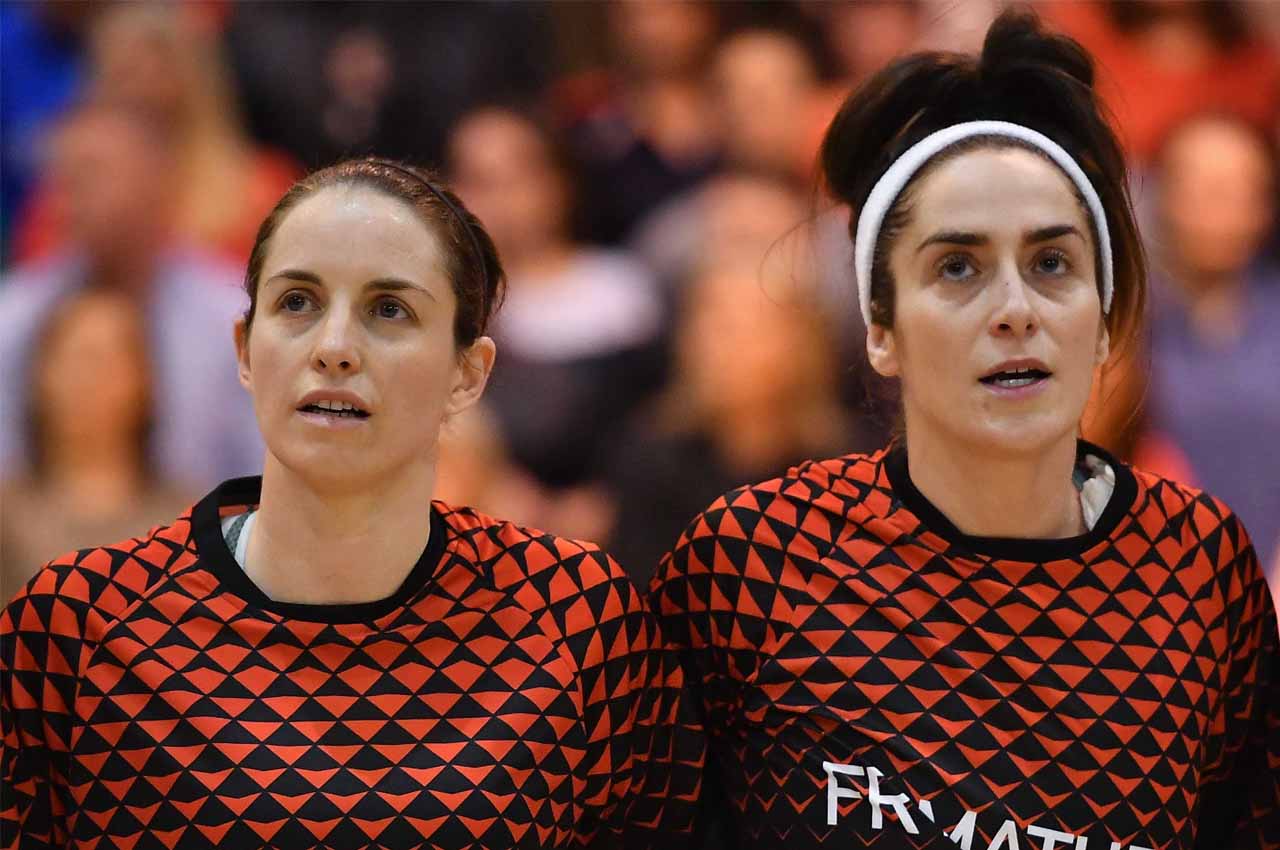
Who would you say was a role model for you as a coach and why?
As you can see have been mostly involved with underage coaching so I suppose I always tend to look back to my own underage coaches in particular Martin Hehir, who was my coach for three years in Pres Thurles, and Ger Tarrent, who was my u18 and u20 international coach. The two of them have different approaches, but what I took from both of them was their knowledge, drive and passion for the sport and for the teams they were coaching. They really instilled a belief in all of their players and had the basketball know-how to help those squads to be successful. Later on, I had Sasa on the Senior women’s team which brought a different dimension to coaching. Sasa’s attention to the little details and how he broke down every movement in the sport was fascinating to me and brought my knowledge of basketball up again.
What is the most important thing for you when coaching younger/teenage boys and girls?
I think the significance of team sports has never been as important to society as it is nowadays with the influence of technology on teenagers’ free time and social life. Team sport pushes teenagers to connect with each other on a face to face level; it teaches them to be responsible to their team mates and of course, it gets them active. These are the things I keep in mind when coaching underage teams.
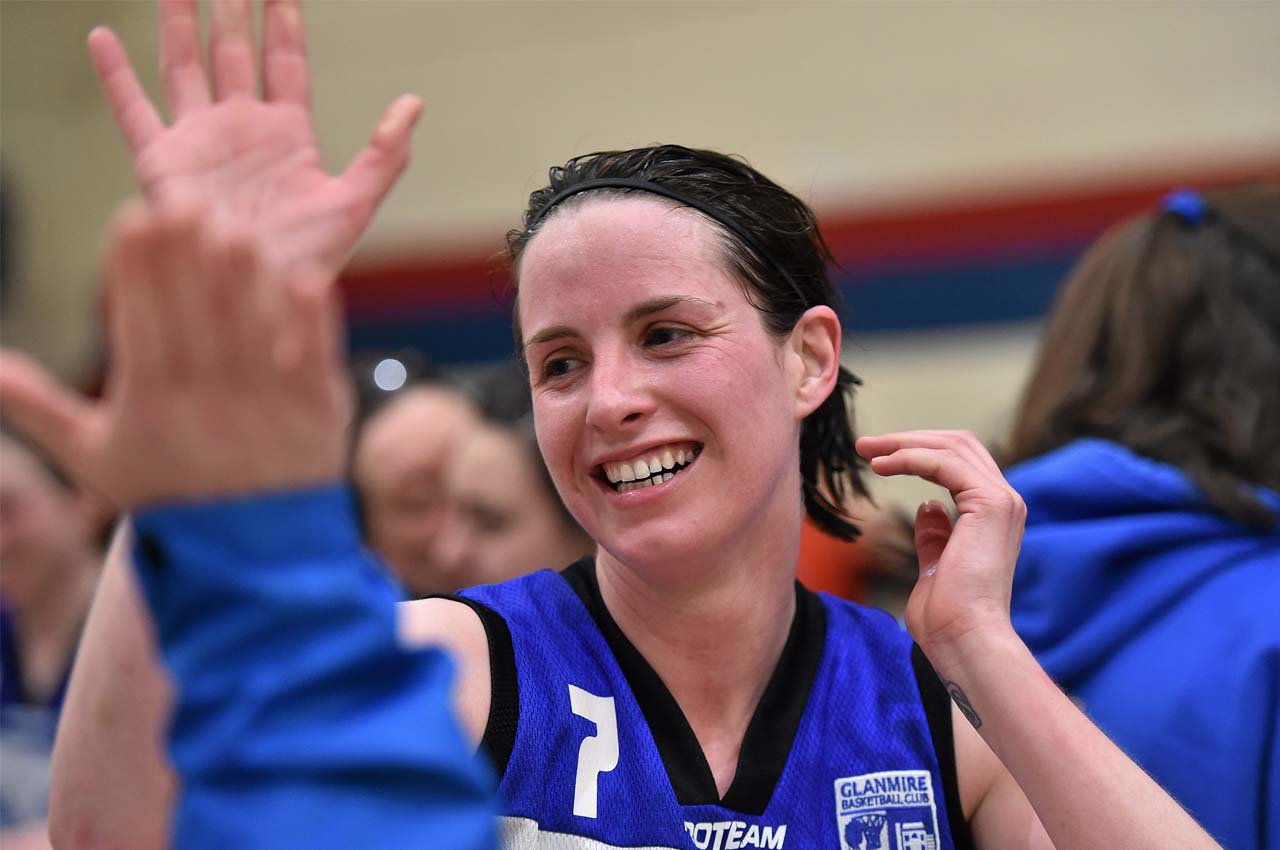
Have you any tips you'd like to share on keeping girls engaged in sport - particularly at the 14-18 year old age group?
I think this is a very tricky age to keep girls engaged in sport. At this stage in sport, it moves from participation to a more competitive level. This is a hard balance for any coach to get right. I think to keep girls involved, the type of team you build will be key to how they bond off the court. I think team building or social events - not just basketball events – help to cement bonds on a team and keep more girls engaged with their team and the sport. This may sound simple, but the time coaches already give, the need for more people involved and cost can all make this very difficult.
Do you have a favourite drill you use for younger players to keep them engaged in the training session and if so, what is it?
For the younger groups I’m all about movement these days, linking back with what I said about technology and sedentary lifestyle in the last question. I warm up a lot with games like stuck in the mud (with basketball skills included of course). That game also teaches skills like evasion, spacing, teamwork, give and go etc. They love it, they sprint around and it really gets their engagement up.
Any tips you would like to give to young coaches who are starting out?
It’s tough starting out, there is so much information, drills etc. out there it can get overwhelming; but have two or three core values/skills you want your players to get to know and just keep going back to them.
When you first stepped up to coach at National League/International level, were you nervous about the step up and how did you deal with that if so?
Doing the 3x3 Under 18 national coach was one of the toughest coaching roles I have had to do. I found making cuts at different stages very hard as it was the first time having to do it and having been a player in that position, knowing the impact it could have. All I can say to any coach is to be honest and do your best for the team – it’s always going to be tough.
What would you say to other female coaches who are considering moving up a level in their coaching careers?
Just do it! It’s important that more women move forward in coaching roles; especially for younger girls to see role models. It is tougher for women in sport to be recognised, but it is getting better and more opportunities are opening up.
How do you measure the success of a training session?
For each session I usually have two or three key areas I want to focus on, whether it’s a skill, play, tactic, etc. To measure success, I gauge player engagement, intensity and understanding of what we are trying to get from the session. Other ways include quantitative measures such as targets in shooting drills or timed drills etc.
How do you measure success in broader terms?
Yes winning and skill development of course are ways of measuring success but our areas include knowledge, motivation, support and goal setting. Different teams will set different goals. If you can set realistic yet challenging goals and achieve them, that would be a very successful season and will install motivation and belief in a team.
How important do you think it is for coaches to keep learning and developing regardless of level of experience?
It’s critical to keep learning the game and improving knowledge. The sport is always changing and developing. As a coach, you have to keep that in mind. Also, tactics that worked with some teams may not work with others so development is important to engage different teams at different stages.
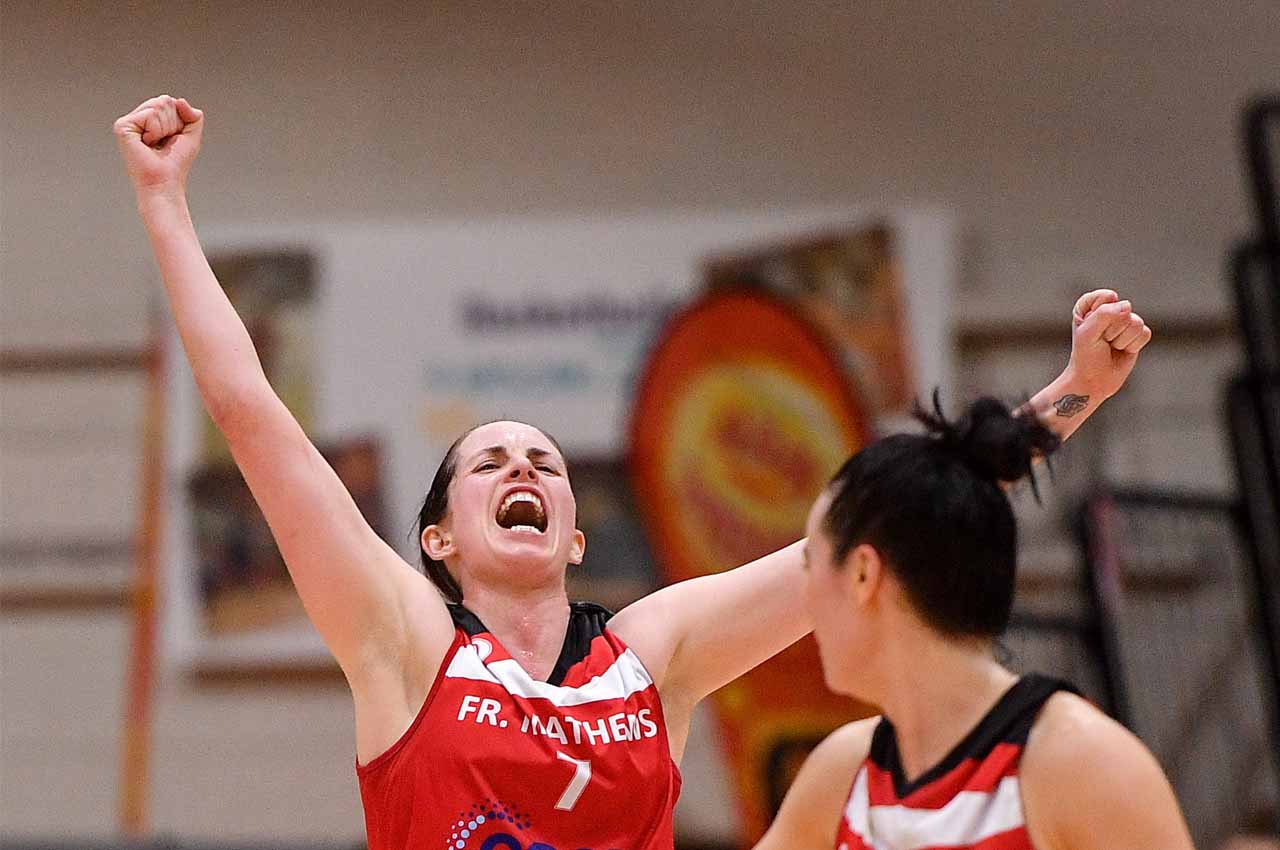
Have you noticed many changes in Ireland in coaching over the years? If so, what?
Yes definitely - a greater knowledge of other areas that impact sport other than just the skills of the sport for example S&C and nutrition. BI had Hannah Thornton doing a talk on nutrition recently as an example.
What changes would you like to see in basketball coaching in Ireland in the future?
I think what I was saying in the question above, areas like S&C etc. are becoming so important in sport. I became especially aware of it more so since my ACL injury. Integration of this into basketball specific sessions is definitely an area I feel as sports could learn from other sports such as rugby.
What is the most valuable lesson you have learned as a player?
You work hard, you keep doing the right things and eventually you will get your opportunities
What is the most valuable lesson you have learned as a coach?
You work hard, you keep doing the right things and eventually you will get your opportunities.
Anything else you'd like to add?
No thank you, I think I have rambled on long enough!

